The choices we make touch other lives
In life we are constantly faced with choices. We are blessed or cursed with the gift of free will, depending on your perspective.
From the smallest detail of “Do you want fries with that?” to “Do you take this woman to be your wife?” in America, we have endless choices.
People can choose to work hard and by doing so achieve great success and accumulate wealth. Some choose to dedicate their energies to benefiting humanity.
Each choice we make sets us upon a path. Even the simplest thing like having one extra cup of coffee in the morning could change your schedule enough to prevent you from being involved in an auto accident.
As I look back on my choices, there are some I would like to change in spite of the fact I do not know what path changing them would have brought. Nevertheless, I cannot change them; I only have the power over what lies ahead, not behind. I can only try to learn from those past choices.
Using my television exposure as a podium, I have spent much of my life speaking to youth about living a successful drug-free life. My work yielded the attention of the National Drug Abuse Resistance Education Officer’s Association. Consequently, they made me an honorary D.A.R.E. officer. I have encouraged thousands across the country to make the choice not to use drugs. I do not know if any made that choice. I can only hope that at least one did.
No matter how you try to influence others, the ultimate choice lies with them. With that choice also lies consequences. When you make a choice that effects you, your family or even others you do not know, it is up to you to take responsibility for what that choice brings.
Many times people try to shift the blame if things are not going as they planned. I think we pick up this behavior as a child. It is the old “He did it” approach to avoid punishment. I do not know about you but that never worked for me. It only made the punishment worse.
Last week I attended a teen/parent forum at the Colonnade that included a discussion from both parents and teens on the issue of parents making choices for their children that affect other children. Choices such as providing alcohol for teen parties or even adults turning a blind eye to drug use by not being vigilant supervisors, as they should.
Some parents may say “I’d rather have them doing it where I can keep an eye on them,” but when other children are involved I imagine their parents might like to have a say and an eye involved in the situation as well. At least that is what the parents at the forum said.
Each choice we make, in some way, affects someone else — sometimes people we do not even know, such as that driver who might be injured by a teenage drunk driver coming from a supervised party where alcohol was served.
Don’t get me wrong. I am not focusing on these parents exclusively. The teenagers admit that even if parents are not providing, some of them will find a way to get alcohol themselves from older siblings, buying it themselves at establishments which do not card them or by sneaking it from a parent when they are not watching.
Unfortunately, these teenage actions expand to various types of drugs, including prescription pills out of medicine cabinets as well.
No matter what choice you make, they are your choices. You ultimately have to live with what results from them. So if you are making a life-changing choice, become informed about what may happen depending on which path your choice leads you.
Even if it turns out to be the wrong choice, at least you did not go down that path with blinders on.

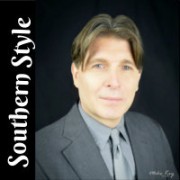
 Judd shares her harrowing personal experience with the severe depression that almost killed her. That ride to success came to a screeching halt when Naomi was diagnosed with Hepatitis C and given only three years to live. Instead of accepting her fate, the former registered nurse educated herself and pursued healing. Today, Naomi is Hep C-free––a medically documented miracle.
Judd shares her harrowing personal experience with the severe depression that almost killed her. That ride to success came to a screeching halt when Naomi was diagnosed with Hepatitis C and given only three years to live. Instead of accepting her fate, the former registered nurse educated herself and pursued healing. Today, Naomi is Hep C-free––a medically documented miracle.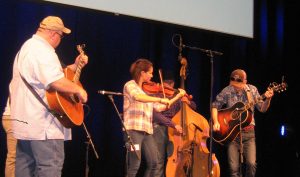
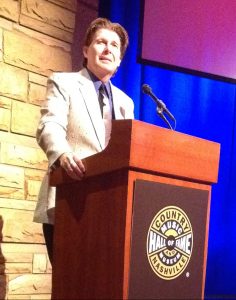
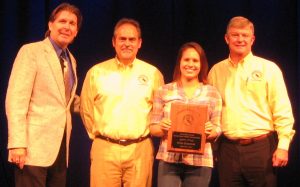
 Legendary rockabilly and country music pioneer Wanda Jackson will see her new autobiography Every Night Is Saturday Night: A Country Girl’s Journey to the Rock & Roll Hall of Fame released by BMG on Nov. 14.
Legendary rockabilly and country music pioneer Wanda Jackson will see her new autobiography Every Night Is Saturday Night: A Country Girl’s Journey to the Rock & Roll Hall of Fame released by BMG on Nov. 14. “I count it a privilege to be in a position to brighten a veteran’s day or help unite the country after a tragedy like 9-11 and I am honored to be named as a Daily Point of Light by our beloved president, George H.W. Bush,” he said. “Knowing that this award is the largest organization dedicated to volunteer service, I consider this to be one of my most prestigious honors.”
“I count it a privilege to be in a position to brighten a veteran’s day or help unite the country after a tragedy like 9-11 and I am honored to be named as a Daily Point of Light by our beloved president, George H.W. Bush,” he said. “Knowing that this award is the largest organization dedicated to volunteer service, I consider this to be one of my most prestigious honors.” Featuring Mullins alongside bluegrass veterans Mike Terry (mandolin), Jason Barie (fiddle), Randy Barnes (bass), and Duane Sparks (guitar), The Story We Tell showcases the band’s most inventive and innovative arrangements to date, both vocally and instrumentally on 12 tracks. With an approach to the music that rings with authenticity, the band secures a rightful place among the traditional guard of bluegrass while standing comfortably shoulder to shoulder with more progressive type artists who find themselves drawn to not only JMRR’s music, but their down-home, likable nature.
Featuring Mullins alongside bluegrass veterans Mike Terry (mandolin), Jason Barie (fiddle), Randy Barnes (bass), and Duane Sparks (guitar), The Story We Tell showcases the band’s most inventive and innovative arrangements to date, both vocally and instrumentally on 12 tracks. With an approach to the music that rings with authenticity, the band secures a rightful place among the traditional guard of bluegrass while standing comfortably shoulder to shoulder with more progressive type artists who find themselves drawn to not only JMRR’s music, but their down-home, likable nature.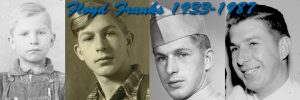

 I have been very pleased to watch many of the youth I once performed with on our stage achieve greater opportunities and see some of their aspirations bring them to the attention of people from around the world. Two talented North Carolina youth who came to our Share America stage with their father Sam in 2008 are vocalist/fiddler Summer Brooke McMahan and banjo stylist Brayden McMahan on banjo with their band Mountain Faith.
I have been very pleased to watch many of the youth I once performed with on our stage achieve greater opportunities and see some of their aspirations bring them to the attention of people from around the world. Two talented North Carolina youth who came to our Share America stage with their father Sam in 2008 are vocalist/fiddler Summer Brooke McMahan and banjo stylist Brayden McMahan on banjo with their band Mountain Faith.